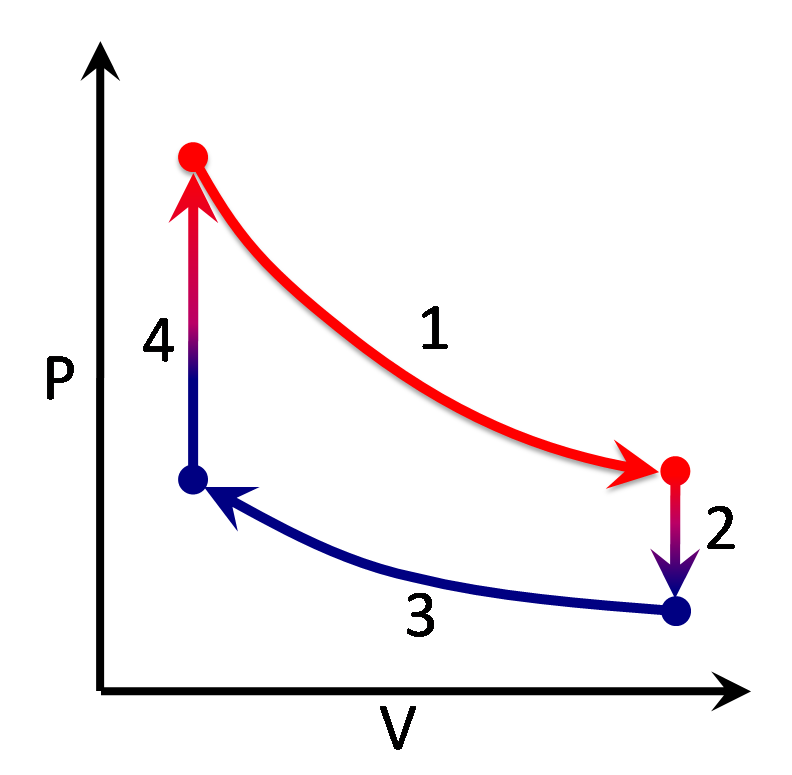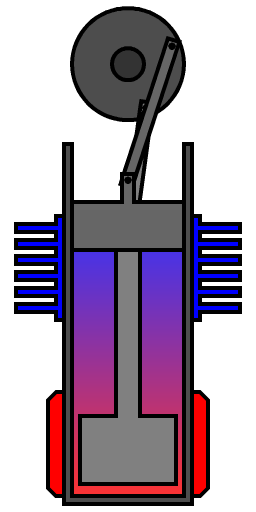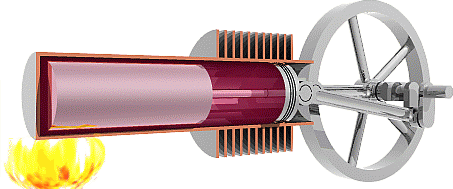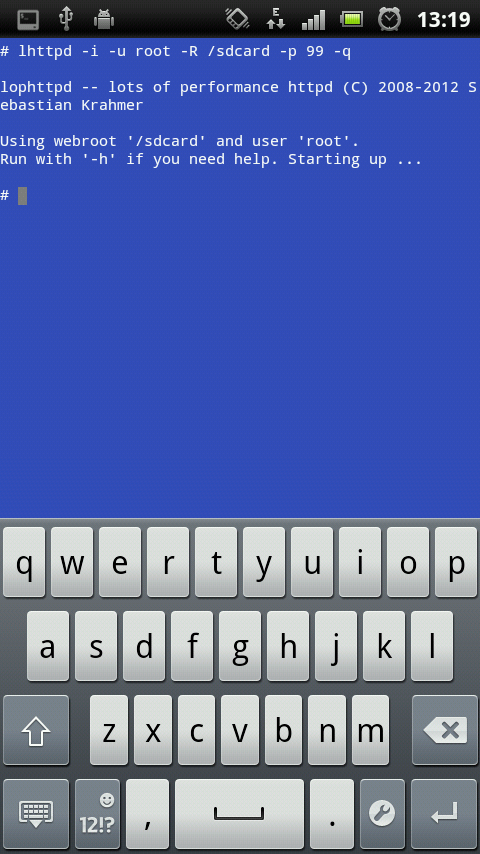Most of the people know about writing a C library, seldom does a common man think about how to know what is written into it. Suppose there is a binary given to you and nothing about is known to you. Now you have to get it running, But you have no clue whats going on....
Let the program be such that it asks for a password in the beginning, depending upon the password given it runs further. Consider this code
This compares the password first and then outputs correct or wrong based on the password. Compile and run this. You are prompted by
Now suppose we have only the executable how do we tell what is the password. Basically our first instinct is to try all possibilities.
Its tiresome and sometimes impossible. Lets take another approach. The first basic thing is to know what sort of executable it is, so type in
It says that the file is a ELF 64-bit LSB executable and belongs to x86-64 architecture. It also reveals that the file is dynamically linked meaning that it uses inbuilt libraries of the system lastly it says the GNU/Linux version. Not much helpful but we still got to know what type of a file it is.
Now that the file is a architecture specific binary and all the binaries are formed by translating assembler instructions to the machine code. We must be able to reverse engineer it to the assembler part at least. So we try
Disassembly of section .text:
00000000004004d0 <_start>:
4004d0: 31 ed xor %ebp,%ebp
4004d2: 49 89 d1 mov %rdx,%r9
4004d5: 5e pop %rsi
4004d6: 48 89 e2 mov %rsp,%rdx
4004d9: 48 83 e4 f0 and $0xfffffffffffffff0,%rsp
4004dd: 50 push %rax
4004de: 54 push %rsp
4004df: 49 c7 c0 a0 06 40 00 mov $0x4006a0,%r8
4004e6: 48 c7 c1 10 06 40 00 mov $0x400610,%rcx
4004ed: 48 c7 c7 b4 05 40 00 mov $0x4005b4,%rdi
4004f4: e8 af ff ff ff callq 4004a8 <__libc_start_main@plt>
4004f9: f4 hlt
4004fa: 90 nop
4004fb: 90 nop
00000000004004fc <call_gmon_start>:
4004fc: 48 83 ec 08 sub $0x8,%rsp
400500: 48 8b 05 d9 0a 20 00 mov 0x200ad9(%rip),%rax # 600fe0 <_DYNAMIC+0x190>
400507: 48 85 c0 test %rax,%rax
40050a: 74 02 je 40050e <call_gmon_start+0x12>
40050c: ff d0 callq *%rax
40050e: 48 83 c4 08 add $0x8,%rsp
400512: c3 retq
400513: 90 nop
400514: 90 nop
400515: 90 nop
400516: 90 nop
400517: 90 nop
400518: 90 nop
400519: 90 nop
40051a: 90 nop
40051b: 90 nop
40051c: 90 nop
40051d: 90 nop
40051e: 90 nop
40051f: 90 nop
0000000000400520 <__do_global_dtors_aux>:
400520: 55 push %rbp
400521: 48 89 e5 mov %rsp,%rbp
400524: 53 push %rbx
400525: 48 83 ec 08 sub $0x8,%rsp
400529: 80 3d 00 0b 20 00 00 cmpb $0x0,0x200b00(%rip) # 601030 <__bss_start>
400530: 75 4b jne 40057d <__do_global_dtors_aux+0x5d>
400532: bb 40 0e 60 00 mov $0x600e40,%ebx
400537: 48 8b 05 fa 0a 20 00 mov 0x200afa(%rip),%rax # 601038 <dtor_idx.6559>
40053e: 48 81 eb 38 0e 60 00 sub $0x600e38,%rbx
400545: 48 c1 fb 03 sar $0x3,%rbx
400549: 48 83 eb 01 sub $0x1,%rbx
40054d: 48 39 d8 cmp %rbx,%rax
400550: 73 24 jae 400576 <__do_global_dtors_aux+0x56>
400552: 66 0f 1f 44 00 00 nopw 0x0(%rax,%rax,1)
400558: 48 83 c0 01 add $0x1,%rax
40055c: 48 89 05 d5 0a 20 00 mov %rax,0x200ad5(%rip) # 601038 <dtor_idx.6559>
400563: ff 14 c5 38 0e 60 00 callq *0x600e38(,%rax,8)
40056a: 48 8b 05 c7 0a 20 00 mov 0x200ac7(%rip),%rax # 601038 <dtor_idx.6559>
400571: 48 39 d8 cmp %rbx,%rax
400574: 72 e2 jb 400558 <__do_global_dtors_aux+0x38>
400576: c6 05 b3 0a 20 00 01 movb $0x1,0x200ab3(%rip) # 601030 <__bss_start>
40057d: 48 83 c4 08 add $0x8,%rsp
400581: 5b pop %rbx
400582: c9 leaveq
400583: c3 retq
400584: 66 66 66 2e 0f 1f 84 data32 data32 nopw %cs:0x0(%rax,%rax,1)
40058b: 00 00 00 00 00
0000000000400590 <frame_dummy>:
400590: 48 83 3d b0 08 20 00 cmpq $0x0,0x2008b0(%rip) # 600e48 <__JCR_END__>
400597: 00
400598: 55 push %rbp
400599: 48 89 e5 mov %rsp,%rbp
40059c: 74 12 je 4005b0 <frame_dummy+0x20>
40059e: b8 00 00 00 00 mov $0x0,%eax
4005a3: 48 85 c0 test %rax,%rax
4005a6: 74 08 je 4005b0 <frame_dummy+0x20>
4005a8: bf 48 0e 60 00 mov $0x600e48,%edi
4005ad: c9 leaveq
4005ae: ff e0 jmpq *%rax
4005b0: c9 leaveq
4005b1: c3 retq
4005b2: 90 nop
4005b3: 90 nop
00000000004005b4 <main>:
4005b4: 55 push %rbp
4005b5: 48 89 e5 mov %rsp,%rbp
4005b8: 48 83 ec 10 sub $0x10,%rsp
4005bc: b8 fc 06 40 00 mov $0x4006fc,%eax
4005c1: 48 89 c7 mov %rax,%rdi
4005c4: b8 00 00 00 00 mov $0x0,%eax
4005c9: e8 ba fe ff ff callq 400488 <printf@plt>
4005ce: b8 0e 07 40 00 mov $0x40070e,%eax
4005d3: 48 8d 55 fc lea -0x4(%rbp),%rdx
4005d7: 48 89 d6 mov %rdx,%rsi
4005da: 48 89 c7 mov %rax,%rdi
4005dd: b8 00 00 00 00 mov $0x0,%eax
4005e2: e8 d1 fe ff ff callq 4004b8 <__isoc99_scanf@plt>
4005e7: 8b 45 fc mov -0x4(%rbp),%eax
4005ea: 3d 00 04 00 00 cmp $0x400,%eax
4005ef: 75 0c jne 4005fd <main+0x49>
4005f1: bf 11 07 40 00 mov $0x400711,%edi
4005f6: e8 9d fe ff ff callq 400498 <puts@plt>
4005fb: eb 0a jmp 400607 <main+0x53>
4005fd: bf 1a 07 40 00 mov $0x40071a,%edi
400602: e8 91 fe ff ff callq 400498 <puts@plt>
400607: b8 00 00 00 00 mov $0x0,%eax
40060c: c9 leaveq
40060d: c3 retq
40060e: 90 nop
40060f: 90 nop
0000000000400610 <__libc_csu_init>:
400610: 48 89 6c 24 d8 mov %rbp,-0x28(%rsp)
400615: 4c 89 64 24 e0 mov %r12,-0x20(%rsp)
40061a: 48 8d 2d 03 08 20 00 lea 0x200803(%rip),%rbp # 600e24 <__init_array_end>
400621: 4c 8d 25 fc 07 20 00 lea 0x2007fc(%rip),%r12 # 600e24 <__init_array_end>
400628: 4c 89 6c 24 e8 mov %r13,-0x18(%rsp)
40062d: 4c 89 74 24 f0 mov %r14,-0x10(%rsp)
400632: 4c 89 7c 24 f8 mov %r15,-0x8(%rsp)
400637: 48 89 5c 24 d0 mov %rbx,-0x30(%rsp)
40063c: 48 83 ec 38 sub $0x38,%rsp
400640: 4c 29 e5 sub %r12,%rbp
400643: 41 89 fd mov %edi,%r13d
400646: 49 89 f6 mov %rsi,%r14
400649: 48 c1 fd 03 sar $0x3,%rbp
40064d: 49 89 d7 mov %rdx,%r15
400650: e8 0b fe ff ff callq 400460 <_init>
400655: 48 85 ed test %rbp,%rbp
400658: 74 1c je 400676 <__libc_csu_init+0x66>
40065a: 31 db xor %ebx,%ebx
40065c: 0f 1f 40 00 nopl 0x0(%rax)
400660: 4c 89 fa mov %r15,%rdx
400663: 4c 89 f6 mov %r14,%rsi
400666: 44 89 ef mov %r13d,%edi
400669: 41 ff 14 dc callq *(%r12,%rbx,8)
40066d: 48 83 c3 01 add $0x1,%rbx
400671: 48 39 eb cmp %rbp,%rbx
400674: 72 ea jb 400660 <__libc_csu_init+0x50>
400676: 48 8b 5c 24 08 mov 0x8(%rsp),%rbx
40067b: 48 8b 6c 24 10 mov 0x10(%rsp),%rbp
400680: 4c 8b 64 24 18 mov 0x18(%rsp),%r12
400685: 4c 8b 6c 24 20 mov 0x20(%rsp),%r13
40068a: 4c 8b 74 24 28 mov 0x28(%rsp),%r14
40068f: 4c 8b 7c 24 30 mov 0x30(%rsp),%r15
400694: 48 83 c4 38 add $0x38,%rsp
400698: c3 retq
400699: 0f 1f 80 00 00 00 00 nopl 0x0(%rax)
00000000004006a0 <__libc_csu_fini>:
4006a0: f3 c3 repz retq
4006a2: 90 nop
4006a3: 90 nop
4006a4: 90 nop
4006a5: 90 nop
4006a6: 90 nop
4006a7: 90 nop
4006a8: 90 nop
4006a9: 90 nop
4006aa: 90 nop
4006ab: 90 nop
4006ac: 90 nop
4006ad: 90 nop
4006ae: 90 nop
4006af: 90 nop
00000000004006b0 <__do_global_ctors_aux>:
4006b0: 55 push %rbp
4006b1: 48 89 e5 mov %rsp,%rbp
4006b4: 53 push %rbx
4006b5: 48 83 ec 08 sub $0x8,%rsp
4006b9: 48 8b 05 68 07 20 00 mov 0x200768(%rip),%rax # 600e28 <__CTOR_LIST__>
4006c0: 48 83 f8 ff cmp $0xffffffffffffffff,%rax
4006c4: 74 19 je 4006df <__do_global_ctors_aux+0x2f>
4006c6: bb 28 0e 60 00 mov $0x600e28,%ebx
4006cb: 0f 1f 44 00 00 nopl 0x0(%rax,%rax,1)
4006d0: 48 83 eb 08 sub $0x8,%rbx
4006d4: ff d0 callq *%rax
4006d6: 48 8b 03 mov (%rbx),%rax
4006d9: 48 83 f8 ff cmp $0xffffffffffffffff,%rax
4006dd: 75 f1 jne 4006d0 <__do_global_ctors_aux+0x20>
4006df: 48 83 c4 08 add $0x8,%rsp
4006e3: 5b pop %rbx
4006e4: c9 leaveq
4006e5: c3 retq
4006e6: 90 nop
4006e7: 90 nop
.text houses the executable code in the ELF binary. This is followed by
Now what is important to us is the executable code. We see that .text has been divide into lot of formats like
These represent the functions created by the user and the compiler so as to link the program to run the shared code and also run the program over the OS. As there is no other function that seems to be created by the programmer lets check out 00000000004005b4 <main>:
Compares contents of register %eax to 0x400. And if true branches to 0x4005fd
And then jumps of to 0x400607(Standard way of implementation of "if-else" statement by compiler), so as to avoid execution of the other printf function.
So our program compares the number 0x400 and prints accordingly. So the password must be 0x400 or 1024 if it is not altered by any function in between. And we see that no manipulation has been done in between. So straightaway try 1024 as the password.

























